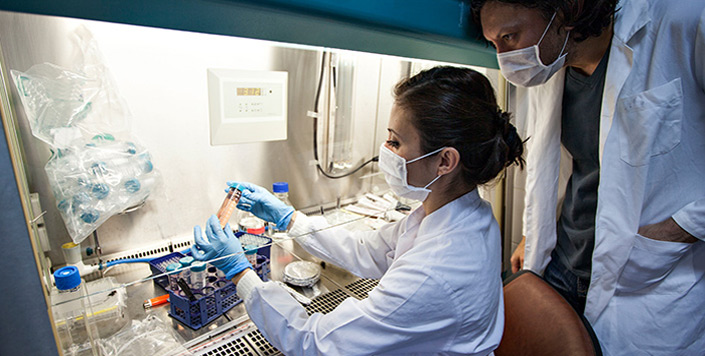
School of Medicine Publications and Presentations
Document Type
Article
Publication Date
10-2018
Abstract
Introduction: Genetic variants have been replicated for association with type 2 diabetes mellitus (T2D) and many of them with diabetes-related traits. Because T2D is highly prevalent in Mexico, this study aimed to test the association of CDKN2A/B, PPARGC1A, VEGFA, SIRT1 and UCP2 gene polymorphisms (rs10811661, rs8192678, rs2010963, rs7896005 and rs659366 respectively) with metabolic traits in 415 unrelated Mexican mestizos with T2D under three models of inheritance.
Material and methods: A total of 415 unrelated Mexican mestizos were genotyped by TaqMan assays. Triglycerides, cholesterol, glucose, high-density lipoprotein cholesterol (HDL-C), insulin and anthropometric measurements were determined and the HOMA-IR was calculated. Association studies were tested by the Kruskal-Wallis test, linear regression, statistical power analysis, Bonferroni correction, paired SNP analysis, and physical interaction by GeneMANIA.
Results: All polymorphisms were in Hardy-Weinberg equilibrium, and the association by genotype with T2D-related traits displayed nominal significance for rs8192678 with glucose (p = 0.023) and triglycerides (p = 0.013); rs2010963 with diastolic blood pressure (DBP) (p = 0.012) and cholesterol (p = 0.013); rs7896005 with DBP (p = 0.012) and insulin (p = 0.011); and rs659366 with cholesterol (p = 0.034), glucose (p = 0.031) and triglycerides (p = 0.028); and the association of rs2010963 with HDL-C (p = 0.0007) was significant. Linear regression performed with three models of inheritance, adjusted by age + sex + BMI and corrected with Bonferroni, showed a significant association of rs2010963 with HDL-C in an additive model (p = 0.007); and rs7896005 was significantly associated with DBP in the recessive model (p = 0.006).
Conclusions: Rigorous analysis evidenced the association of VEGFA rs2010963 and SIRT1 rs7896005 with HDL-C and DBP respectively; these traits are known predictors of cardiovascular complications, which increase the risk of cardiovascular diseases in this population.
Recommended Citation
Totomoch-Serra, A., Muñoz, M. L., Burgueño, J., Revilla-Monsalve, M. C., & Diaz-Badillo, A. (2018). Association of common polymorphisms in the VEGFA and SIRT1 genes with type 2 diabetes-related traits in Mexicans. Archives of medical science : AMS, 14(6), 1361–1373. https://doi.org/10.5114/aoms.2018.74757
Creative Commons License

This work is licensed under a Creative Commons Attribution-NonCommercial-Share Alike 4.0 International License.
Publication Title
Archives of medical science : AMS
DOI
10.5114/aoms.2018.74757
Academic Level
faculty
Mentor/PI Department
Office of Human Genetics


Comments
© 2018 Termedia & Banach